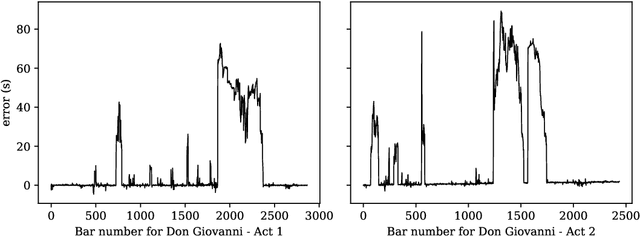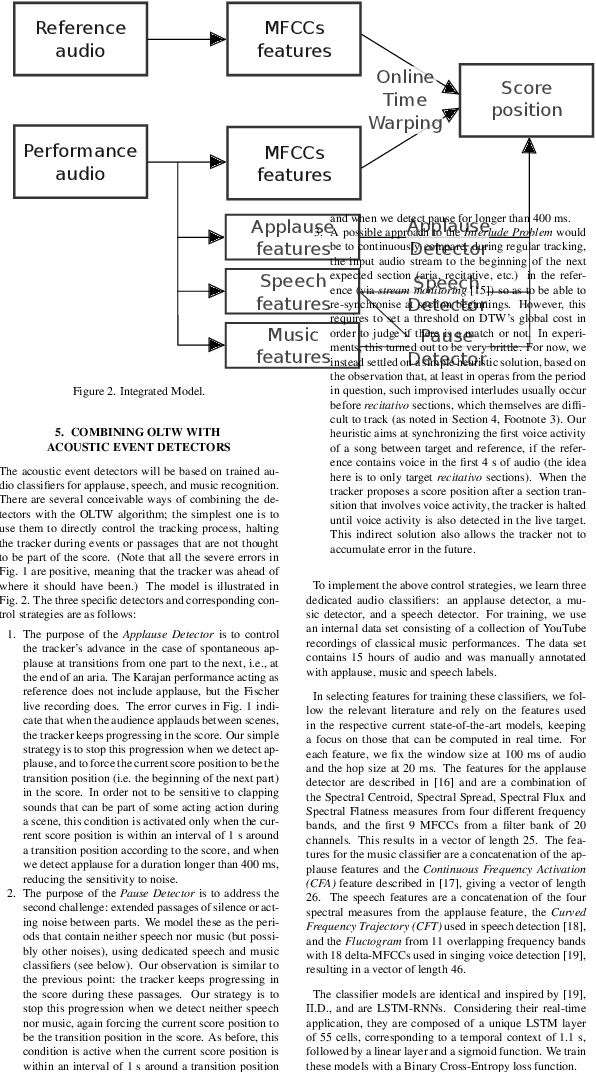Towards Reliable Real-time Opera Tracking: Combining Alignment with Audio Event Detectors to Increase Robustness
Paper and Code
Jun 19, 2020



Recent advances in real-time music score following have made it possible for machines to automatically track highly complex polyphonic music, including full orchestra performances. In this paper, we attempt to take this to an even higher level, namely, live tracking of full operas. We first apply a state-of-the-art audio alignment method based on online Dynamic Time-Warping (OLTW) to full-length recordings of a Mozart opera and, analyzing the tracker's most severe errors, identify three common sources of problems specific to the opera scenario. To address these, we propose a combination of a DTW-based music tracker with specialized audio event detectors (for applause, silence/noise, and speech) that condition the DTW algorithm in a top-down fashion, and show, step by step, how these detectors add robustness to the score follower. However, there remain a number of open problems which we identify as targets for ongoing and future research.
 Add to Chrome
Add to Chrome Add to Firefox
Add to Firefox Add to Edge
Add to Edge